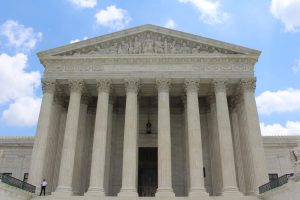File Bankruptcy Again: Know Your Rights to Fully Exercise Your Next Wisconsin Bankruptcy
If you’re considering filing for bankruptcy again, it’s essential to understand the process and limitations. Multiple bankruptcy filings are possible, but they come with specific waiting periods and rules. In this guide, we’ll explore when and how you can file bankruptcy again, ensuring you make informed decisions about your financial future.
File Bankruptcy Again: How Often Can You File for Bankruptcy?
Bankruptcy is not a one-time option. You can file for bankruptcy as many times as necessary to address your financial challenges. However, there are waiting periods you must adhere to before receiving another discharge of debts.
Your waiting period depends on the type of bankruptcy you previously filed and the one you intend to file next. Here’s a breakdown of the waiting periods:
File Bankruptcy Again: Chapter 7 to Chapter 7:
- If you previously filed Chapter 7 and plan to file Chapter 7 again, you’ll need to wait eight years from the filing date of your previous Chapter 7 case.
File Bankruptcy Again: Chapter 7 to Chapter 13:
- If you filed Chapter 7 before and now intend to file Chapter 13, the waiting period is four years from your previous Chapter 7 filing date.
File Bankruptcy Again: Chapter 13 to Chapter 13:
- If you previously filed Chapter 13 and plan to do so again, you can file after two years from the previous Chapter 13 filing date.
File Bankruptcy Again: Chapter 13 to Chapter 7:
- If you filed Chapter 13 and now want to file Chapter 7, the waiting period is six years from the previous Chapter 13 filing date.
File Bankruptcy Again: Chapter 13 Exception:
- There’s an exception for Chapter 13 filers who paid off all unsecured creditors or at least 70% of unsecured claims, proposed a plan in good faith, and made an earnest effort to pay creditors. Their waiting period for filing Chapter 7 is shorter.
When Filing Without a Discharge Makes Sense
Sometimes, you may consider filing for bankruptcy without seeking a discharge. This can be beneficial for various reasons:
- Business Closure: If you’re a business owner, you might file for Chapter 7 without expecting a discharge to ensure a transparent liquidation of business assets, reducing potential legal issues.
- Forcing Repayment: Individuals facing threats from creditors may choose Chapter 13 even without seeking a discharge. This allows them to establish a repayment plan, providing a practical solution when you need more time, not necessarily debt forgiveness.
- Chapter 20 Bankruptcy: This involves discharging qualifying debts in Chapter 7 and immediately using a Chapter 13 payment plan to address nondischargeable debts not eliminated in Chapter 7. However, Chapter 20 can be complex and isn’t permitted in all jurisdictions.
What If You Didn’t Receive a Discharge Previously?
If you filed for bankruptcy but didn’t receive a discharge, you can file again in most cases. However, specific conditions apply:
- Court Dismissal: If your previous case was dismissed by the court, you can usually file again. But if you didn’t obey a court order or voluntarily dismissed the case after a creditor’s motion, a 180-day waiting period might apply.
- Denied Discharge: If the court denied your discharge, you might file again. However, debts listed in your first case might not be dischargeable in the new filing.
Keep in mind that multiple bankruptcies within a short timeframe may limit the automatic stay duration, which halts creditors from collecting. For instance, filing twice within a year might result in a 30-day stay, or the court might not issue a stay if you’ve filed twice in the past year.
Avoiding Abusive Bankruptcy Filings
Courts disapprove of abusive bankruptcy filings, which can involve filing without the intention of following through or attempting to misuse the bankruptcy process. Such actions can lead to consequences like losing the automatic stay or discharge.
It’s crucial to approach bankruptcy with genuine financial challenges and seek legal guidance to ensure your filings are appropriate and compliant with the law.
If you have questions or are considering filing for bankruptcy again, contact Dahlberg Law Group at (262) 677-8999, where our experienced attorneys, including Attorney Steve Eichsteadt, can provide expert guidance tailored to your unique situation.
For detailed information on the bankruptcy process, visit the official website of the U.S. Bankruptcy Court for the Western District of Wisconsin. Additionally, you can find forms and resources for bankruptcy filings on the Wisconsin Court System’s official website.


